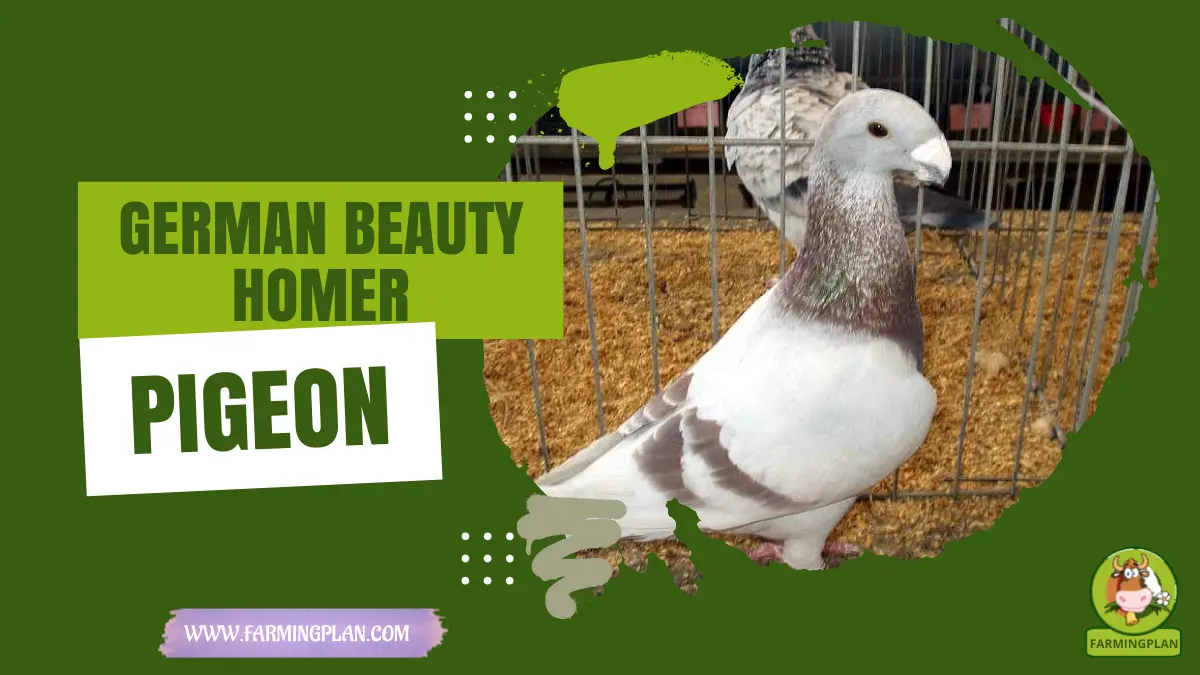Ancient cultures, especially the Greeks, often serve as a timeless inspiration when we think of beauty. One of the most influential figures in shaping beauty ideals is the Greek poet Homer, whose works, The Iliad and The Odyssey, showcase strength, grace, and physical beauty. But how does this relate to Germany, a country rich in intellectual and cultural heritage? This article explores German Beauty Homer, a concept that blends Homeric ideals with German culture, impacting modern beauty standards. We’ll uncover how ancient traditions continue influencing our view of beauty today, blending past and present ideals.

Understanding Beauty Standards in Ancient Greece
To understand the influence of German Beauty Homer, we need to start with the foundation: ancient Greek beauty standards. In ancient Greece, beauty was not just about appearance—it was deeply connected to physical and moral ideals.
The Concept of “Kalokagathia”
The Greeks believed that beauty reflected harmony and balance. They viewed a beautiful person as someone whose body was well-proportioned and whose character was virtuous. The idea of “kalokagathia” (meaning “beauty and goodness”) was central to Greek culture. People were considered beautiful only when their outer appearance matched their inner virtue.
Homer’s Depiction of Beauty
As one of the greatest poets of ancient Greece, Homer played a crucial role in shaping these ideals. In The Iliad, he describes warriors like Achilles and Hector as physically strong, handsome, and noble. Similarly, in The Odyssey, characters like Odysseus and Helen of Troy are portrayed as epitomes of beauty, with their physical features symbolizing strength, grace, and heroism. Homer’s portrayal of beauty was not just about looks. His characters often displayed bravery, wisdom, and loyalty—qualities considered as crucial as physical beauty. This connection between internal and external beauty was influential and became a cornerstone of Greek and German beauty standards.
Read More: American Show Racer
The Influence of Homer’s Beauty Ideals on German Culture
The influence of Homer’s works extended far beyond ancient Greece, reaching into the heart of Germany during the Renaissance and Enlightenment periods. Homer’s depiction of beauty inspired thinkers, artists, and philosophers in Germany. They admired the Greeks for their appreciation of harmony, proportion, and balance in both art and life.
German Philosophers and Homer’s Influence
In particular, German philosophers like Johann Wolfgang von Goethe and Friedrich Schiller often looked to Greek ideals to understand beauty and aesthetics. In his Theory of Colours, Goethe explored the idea that color could evoke beauty and emotion, much like the ancient Greek philosophers believed beauty could reveal more profound truths about the soul.
Artists Inspired by Homer
The classical beauty of Greek art and mythology inspired artists such as Albert Bierstadt and Caspar David Friedrich. They often used Homer’s descriptions of heroic figures as models for their works. These German artists blended Greek influences with their cultural values, creating a distinctive version of beauty that combined strength, grace, and elegance. In this way, German Beauty Homer emerged as an artistic fusion—blending Homer’s Greek ideals with Germany’s rich intellectualism, art, and philosophy tradition.
German Beauty Standards: From Classical to Modern Times
As German culture continued to evolve, so did its beauty standards. In the 19th and early 20th centuries, Germany experienced a resurgence of interest in classical ideals, including those described by Homer. During this period, beauty in Germany was closely linked to ideas of purity, symmetry, and naturalness.
The Influence of Classical Beauty
Inspired by Homer’s heroes and heroines, the German notion of beauty emphasized muscular, healthy bodies and graceful movements. Women, in particular, were seen as beautiful when they displayed physical strength and elegance. This was reflected in German art, literature, and even the early film industry, where actresses were often portrayed as strong yet feminine.
Modern German Beauty Ideals
In modern times, German Beauty Homer continues to influence beauty standards in Germany. While trends have evolved, there is still a reverence for the ideals of balance and proportion. The beauty industry in Germany strongly emphasizes skincare, wellness, and inner health—reflecting the timeless connection between Homer’s ideals and modern concepts of beauty.
Comparing German Beauty Homer with Other Cultural Beauty Ideals
It’s important to note that while Homer’s beauty ideals influenced German culture, they also left their mark on other parts of the world. For instance, ancient Greek beauty standards have had a lasting impact on Western culture, influencing everything from art to fashion to body image.
Greek vs. German Beauty Ideals
Comparing German Beauty Homer with other cultural beauty ideals reveals similarities and differences. Like Greek beauty, German ideals emphasize balance, proportion, and harmony between the mind and body. However, Germany’s unique aesthetic preferences set it apart from Greece and other cultures.
Nature and Natural Beauty
For example, while Greek beauty standards often focused on athleticism and heroism, German beauty standards emphasized individuals’ intellectual and moral virtues. In addition, Germany’s historical interest in nature and natural beauty has shaped modern trends in skincare, health, and wellness.
Read More: Belgian Homer Pigeon
The Timeless Nature of Beauty
One of the most fascinating aspects of German Beauty Homer is how it has stood the test of time. Homer described beauty as not a fleeting trend but an enduring ideal. This timeless nature of beauty is one of the reasons why Homer’s works continue to inspire people today.
Beauty Beyond Physical Appearance
Homer’s characters are still seen as models of beauty because they represent more than just physical attractiveness—they represent virtues like courage, wisdom, and integrity. In modern society, we often seek beauty that reflects inner strength and character, much like the heroes and heroines of Homer’s epics. The fusion of German cultural ideals with Homer’s depiction of beauty has created a beauty standard that emphasizes balance and harmony, both physically and morally. This timeless vision of beauty is something that resonates with people all over the world, regardless of cultural background.
- Beauty Tips from German Beauty Homer: Classical Inspiration for Modern Times
- What can we learn from German Beauty Homer to apply to our lives? Here are some beauty tips inspired by Homeric and German ideals:
- Embrace Balance: Striking for balance in your daily routine, whether through exercise, nutrition, or skincare, can enhance your natural beauty.
- Nourish Your Body and Mind: True beauty comes from within. For a well-rounded sense of beauty, focus on maintaining your mental and physical health.
- Find Strength in Elegance: Like the heroes in Homer’s epics, they embrace strength and grace. Whether through physical activity or how you carry yourself, embody power and poise.
- Be Confident in Your Uniqueness: Just as Homer celebrated the distinct qualities of his characters, celebrate what makes you unique—your character, strengths, and flaws.
Embracing Your Beauty: Lessons from Homer and German Tradition
- Homer and German culture teach us that beauty is more than just what meets the eye. It’s about how we live our lives and the virtues we embody. Embracing your beauty means understanding that it’s not about fitting into one specific mold but expressing your true self.
- By looking to Homer’s heroes and heroines for inspiration, we can learn to appreciate our strengths and imperfections. Beauty is about confidence, self-respect, and living a life aligned with your values. Just as Homer’s characters were admired for their inner qualities, we can embrace our unique beauty and make it shine from within.
Additional Ideas for Understanding Beauty in Classical Literature
While Homer’s works are central to the concept of German Beauty Homer, other classical literature also explores the idea of beauty. Greek tragedies, for example, often depicted characters whose physical beauty was linked to their fate. Works like Oedipus Rex or Antigone show how beauty can be intertwined with themes of morality and destiny.
The German Romantic Movement and Beauty
German literature, particularly from the Romantic period, also often explored the beauty of nature and the human spirit. Writers like Goethe and Schiller considered beauty a reflection of the natural world, connecting inner virtues with outward appearance. By studying these works, we gain a deeper understanding of how beauty is more than just a visual experience—it’s a way of being and living.
Read More: Racing Homer Pigeon
Conclusion: German Beauty Homer as a Timeless Legacy
In conclusion, German Beauty Homer represents a powerful fusion of classical Greek ideals and German cultural traditions. In his epics, Homer’s portrayal of beauty influences how we view physical appearance, strength, and character. The timeless nature of these ideals reminds us that true beauty is about balance, harmony, and embracing our strengths and imperfections. As we move forward, it’s important to remember that beauty is not just about trends or appearances—it’s about living authentically, embracing our inner and outer selves, and finding harmony in all aspects of life.
FAQs
What is “German Beauty Homer”?
German Beauty Homer fuses Homeric beauty ideals from ancient Greece with German cultural influences, creating a timeless beauty standard.
How did Homer influence German beauty standards?
Homer’s portrayal of beauty, strength, and grace profoundly influenced German artists, philosophers, and thinkers during the Renaissance and Enlightenment.
Can modern beauty trends still be influenced by Homeric ideals?
Yes, Homeric ideals of balance, harmony, and inner strength continue to inspire modern beauty standards today.
How does German Beauty Homer connect with inner virtues?
German Beauty Homer emphasizes that true beauty goes beyond appearance, highlighting strength, wisdom, and integrity as core qualities.
How can I apply German Beauty Homer to my own life?
Focusing on physical and mental well-being can help you embrace balance, confidence, and inner strength, just as Homer’s characters did.
Conclusion
In conclusion, German Beauty Homer blends ancient Greek beauty ideals with German cultural traditions, emphasizing balance, strength, and inner virtue. This timeless concept of beauty transcends physical appearance, highlighting qualities like courage, wisdom, and grace. Whether in art, literature, or daily life, these principles inspire and shape modern beauty standards. By embracing both external and internal harmony, we can all adopt German Beauty Homer’s values to enhance our sense of beauty, confidence, and self-expression. This journey into classical ideals teaches us true beauty lies in balance and authenticity.


